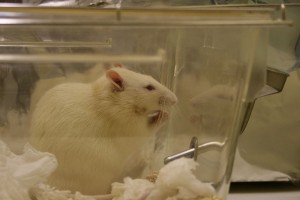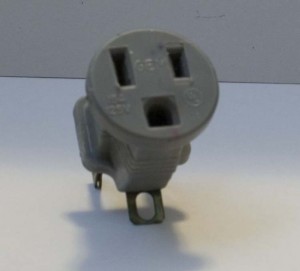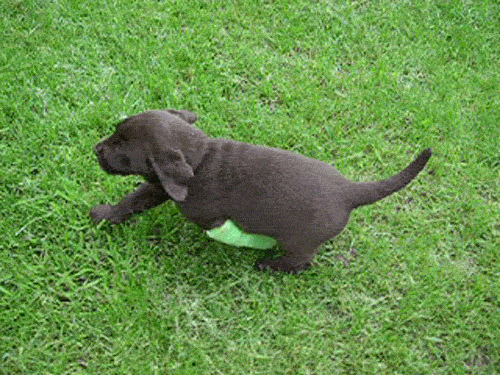I’ve always had a pretty psychology-heavy approach to spirituality, even before I went to grad school. I confess that I am one of those people who studied psychology in part to figure myself out; while in some ways I am a very capable, functional and adaptable human being, I do have my challenges. I’ve used therapy for years to help treat my anxiety and other idiosyncracies, but even when going on a weekly basis, I still have to attend to myself the other 167 hours. For a good long while I used meditation, with a strong focus on emotional processing, as a big part of my personal psychological toolkit.
It worked pretty well for several years. It gave me an outlet for exploring the weird twists and turns of my mind, particularly regarding my past. I grew up in a pretty safe and loving household, and even if I seemed to be a peculiar child, I was never, ever unwanted. But I also grew up with a constant onslaught of bullying at school, starting in second grade and going all the way to the end of high school. I had very few friends, and most of the ones I did have would often turn on me with no notice. For years I found refuge outdoors, alone and mostly unsupervised, able to immerse myself in the fauna and flora and fungi around me. But there was an additional trauma when the woods I took refuge in were suddenly and brutally bulldozed, and I found myself with nowhere to turn with my grief.
My twenties were tough, and I spent a lot of time trying to detangle myself from all these early influences. And for a while, it served its purpose. I gained more awareness of why I behaved in certain ways, and felt a little less like a badly programmed automaton. I even did some rite of passage work to banish certain behavior patterns or the effects of particular memories as a way of trying to reprogram myself.
But knowing how my brain worked and doing one-off symbolic actions wasn’t enough. In fact, beyond a certain point, it became counterproductive. I started spending too much time in my head, and would retreat into it as a defense against the anxiety, stress and other nasties that had plagued me for so long. I thought that if I could just tell my life story a little more clearly, I’d somehow be free of it, once that final piece was laid into place.

This was all amplified when I ended up in a relationship for a few years with someone who also did a good deal of internal processing and past-picking. Now I had someone else encouraging me to dig deeper, spend more time “sitting with myself” and my problems and my pain and otherwise focusing on the stuff in my head. Some of their suggested techniques were different than what I was doing, but the result was the same–I stayed stuck in my head, a broken record skipping over the same crack again and again and thinking that the sound I made was the music I was supposed to hear. Eventually it became something of a horrible feedback loop between us, especially when we’d fight–instead of dealing with the problem itself, we’d take turns explaining exactly why we were each behaving the way we were, sometimes spending hours in this war-storying* circlejerk. Unsurprisingly, the actual thing we were fighting about rarely got addressed, and it would just come up again later. In the interim, we’d both meditate and otherwise “reflect” on ourselves and our quirks and flaws in an attempt to gain control of them, which invariably did little good. I was supposed to be visiting my past in these meditations as a way of giving myself control in my everyday life, but instead all I was doing was reinforcing the neurological pathways in my brain that led to the anxiety and other problems.
This approach to “fixing things” continued until I became involved with my current partner a few years ago and began trying the same processing patterns with him. Not too long into our relationship, I had a bit of an anxiety attack, and my immediate response was to open up the mental Rolodex of “Why is this happening? What patterns in my childhood led to this response behavior?” and so forth, going over the same tired examples in the hopes of finding some new little twist I’d missed before. He’d seen this happen a few times, and he’s a pretty observant person; I’ve actually learned quite a bit about empathy and active listening from him.
So he stopped me in mid-sentence. I forget exactly what he said, but it was something along the lines of “Lupa, what are you trying to do? You’re not ten years old any more; you’re not fifteen, and you’re not twenty. You are who you are now, and you need to stop hanging on so tightly to who you were back then. Be here now.” And then instead of letting me continue to obsess over the reasons for my anxiety attack and what created my anxiety disorder in the first place and who bullied me, etc. etc., which kept my anxiety heightened until I exhausted myself, he carefully walked me through the anxiety, calmed me down, and grounded me in the present.
It boggles my mind that until that point no one had ever effectively done that for me before. I’d gotten a lot of dismissive remarks like “Just get over it” and “What are you making such a big deal for?” I’d gotten yelled at and bullied and retraumatized into shutting up by those who couldn’t handle what was happening to me any more than I could, even by people who were supposed to be helping me. And I’d both inflicted on myself and had reinforced by others this idea that if I just “sat with my past” it would fix everything and empower me to change; in the end, people who thought they were helping me by leading me deeper into myself were just perpetuating the problem and hurting me even more with their “expertise”. And yet someone who had only known me for a handful of weeks was able to see where I was stuck in my head and gave me a lifeline out of it.
It took me a while after that incident to break myself of the instant response of “INTERNALIZE! PROCESS! REFLECT!” whenever I got hit with stress. There were plenty of times where I realized, or my partner observed, that “Lupa, you’re doing that thing again. Quit it. Come back here.” And being that I was deep in grad school at the time, I was embroiled in upper-level psych and counseling classes that kept unearthing things in my head (this is why my program required every student to receive at least ten hours of therapy before starting their practicum). So it was a hard fight out of my internal cage.
But eventually I got there. I don’t remember the precise time when things shifted; like so much growth, it was gradual–as opposed to the sudden growth spurts I think I must have been expecting with every new revelation I discovered about my past during meditations and processing sessions. It’s been a couple of years at least, though, since I can remember it happening.
Of course, some things are still the same old Lupa–I still have anxiety attacks now and then, usually from fairly predictable stimuli. But at least now my panicking brain focuses on the here and now, along with some catastrophizing about the future. The catastrophizing I can get around by reminding myself that I’m looking at the worst case scenario and the future hasn’t arrived yet so it does no good to worry about it now, and so then I can get down to the business of the present. And because I’m shifting my focus to the present, I become aware, most of the times when an attack happens, that my mind is going haywire because my brain and body are flooded with fight, flight or freeze chemicals, and I hang onto that awareness til the chemicals flush out of my system and I can think rationally again.
More importantly, I’m not constantly reinforcing that connection with my past. While I have an understanding of how my past shaped who I am today, it’s no longer the central focus of my identity like it used to be. Instead, “influences from my past” is just one of many and varied threads of self that all weave together to create who I am in this moment. Nor do I have to nitpick every single thing I do under the magnifying glass of my past. If I happen to notice a connection between past and present, I note it briefly, usually with a bit of curiosity and “Huh, okay, that makes sense”. And then I move the fuck on with my day.

Does this mean I’ve written off meditation entirely? Absolutely not. But these days I use it as an antidote to overthinking; my meditation is based in mindfulness, not magic. Even when I do guided visualizations I’m not trying to power my way through chakra blockages or go on quests to seek the grails within. Instead, what I visualize are things that reconnect me with the physical world. With my eyes closed, I try to pinpoint exactly where a particular sound is coming from, or to remember where I am in location to a specific tree. And then when I open my eyes again, I am fully here and now again, not rabbiting off down some path to the mean old past yet again.
And that’s made all the difference. A few years ago, if I were talking about my relationship with meditation down the years, I’d be hyper-analyzing every detail of the story, and finishing it with “…and that’s why I am the way I am today! Look how smart I am for recognizing that!” And that’s it. This post is a curious note in my thoughts today, where I realized “Oh, hey, remember that thing you used to do, Lupa? You haven’t done it in years!” And my response was “Oh, hey, that’s cool.” I thought maybe my cautionary tale would be of interest to some readers, maybe if others are stuck in the same headspace; I got out, and maybe you can, too.
As to my ongoing work to calm my anxiety? I acknowledge that my brain doesn’t quite work right; maybe that’ll change someday, maybe not, but I don’t need to try to figure out every single thing that led up to it being the way it is. It’s okay that I’m able to largely ignore injuries of the past and let them work on healing while I do other stuff. I’m like this little puppy with a busted leg all wrapped up, run-stumbling around Tumblr lately:
Like Tumblr user iraffiruse said about the pup:
Some people might feel sorry for themselves in this situation
Puppy don’t care
Puppy’s got stuff to do
Puppy’s got places to be
Puppy’s got people to bark at and things to sniff.
And I think I can relate to that little ouch-legged pup in that.
* War-storying is a term I picked up from when I was interning at an addictions treatment facility in my final year of grad school. It refers to a phenomenon in addictions treatment where the client spends their time telling and re-telling stories from their past to get an emotional rise out of themselves and, as they hope, their audience. It isn’t particularly effective, as it’s just reliving the experience rather than attending to its effects in the now. It’s also very similar to some of the “internal work” I was attempting to do.


